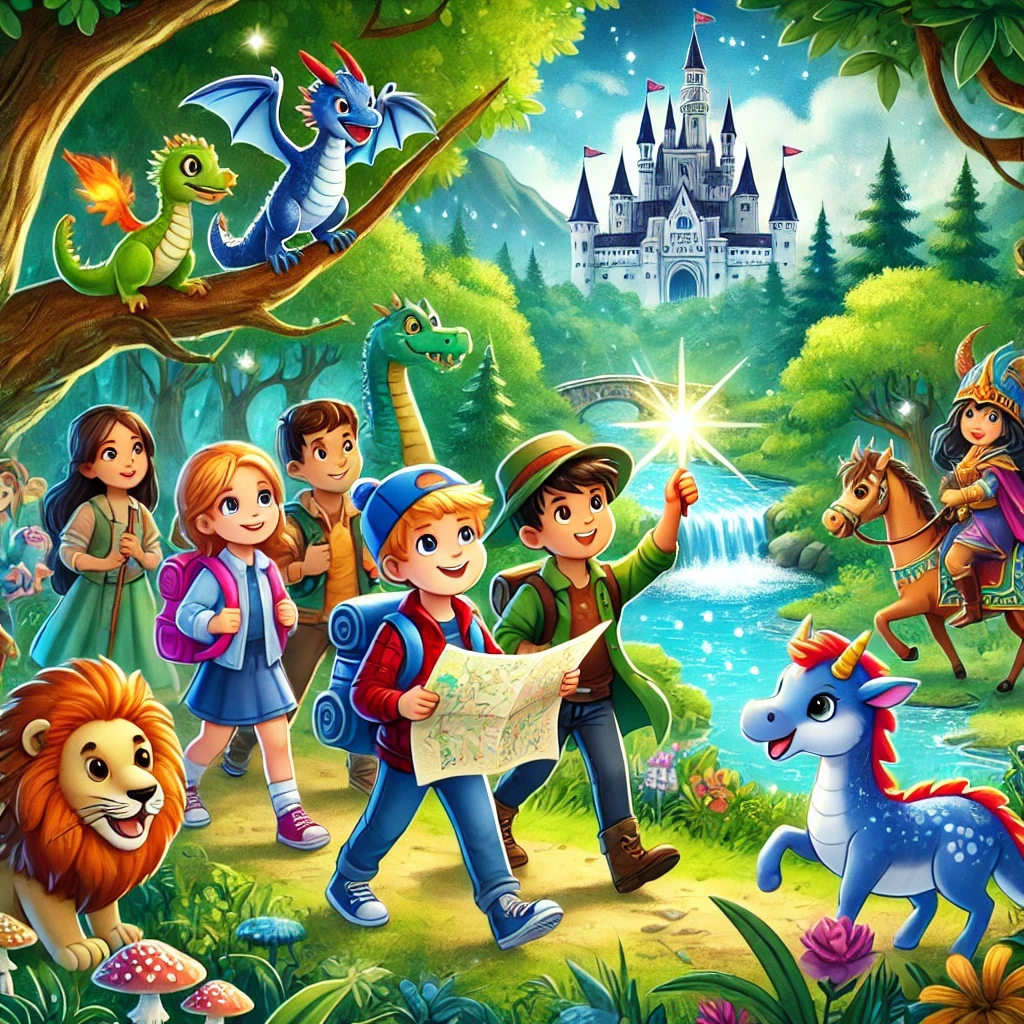Adventure stories have long captivated young readers, transporting them to exciting worlds filled with daring quests, mysterious discoveries, and heroic feats. These tales ignite the imagination, foster a love for reading, and often impart valuable lessons about bravery, resilience, and friendship. Let’s delve into the world of adventure stories for kids and explore some timeless classics and modern favorites that are sure to inspire young adventurers.
1. The Magic of Adventure Stories
Adventure stories captivate children by immersing them in thrilling plots and dynamic settings. These tales often feature protagonists who embark on journeys, face challenges, and experience personal growth. The genre’s appeal lies in its ability to combine excitement with meaningful themes, making it both entertaining and educational.
-
Heroic Quests: Central characters often embark on a journey to achieve a goal or solve a mystery.
-
Challenging Obstacles: Protagonists face various challenges that test their courage and wit.
-
Dynamic Settings: From enchanted forests to distant planets, the settings are rich and imaginative.
-
Personal Growth: Characters often learn important life lessons through their adventures.
2. Classic Adventure Stories
1. Peter Pan by J.M. Barrie
-
Synopsis: Follow Peter Pan, the boy who never grows up, and his adventures in Neverland with Wendy, John, Michael, and the Lost Boys as they battle Captain Hook.
-
Themes: Eternal youth, friendship, bravery
2. Treasure Island by Robert Louis Stevenson
-
Synopsis: Young Jim Hawkins embarks on a sea voyage to find buried treasure, facing pirates and moral dilemmas along the way.
-
Themes: Adventure, morality, the thrill of discovery
3. The Adventures of Huckleberry Finn by Mark Twain
-
Synopsis: Huck Finn and Jim, a runaway slave, travel down the Mississippi River, encountering various characters and challenges.
-
Themes: Friendship, freedom, social justice
3. Modern Adventure Stories
1. Percy Jackson & the Olympians series by Rick Riordan
-
Synopsis: Percy Jackson discovers he is a demigod and embarks on quests involving Greek mythology, facing monsters and uncovering secrets about his heritage.
-
Themes: Identity, bravery, teamwork
2. Harry Potter series by J.K. Rowling
-
Synopsis: Harry Potter, a young wizard, attends Hogwarts School of Witchcraft and Wizardry, where he battles dark forces and uncovers his destiny.
-
Themes: Friendship, courage, the battle between good and evil
3. The Wild Robot by Peter Brown
-
Synopsis: Roz, a robot, washes ashore on a remote island and must learn to survive in the wild, making friends with animals and discovering her purpose.
-
Themes: Adaptation, friendship, self-discovery
4. Lesser-Known Gems
1. Island of the Aunts by Eva Ibbotson
-
Synopsis: Three children are kidnapped by a group of aunts to help care for magical creatures on a hidden island, leading to unexpected adventures and friendships.
-
Themes: Responsibility, caring for others, adventure
2. The Land of Stories series by Chris Colfer
-
Synopsis: Twins Alex and Conner Bailey fall into a magical book and find themselves in a world where fairy tales are real, embarking on quests to return home.
-
Themes: Imagination, family, perseverance
3. The Jumbies by Tracey Baptiste
-
Synopsis: Corinne La Mer must confront jumbies—supernatural creatures from Caribbean folklore—to save her island home.
-
Themes: Courage, folklore, cultural heritage
5. Benefits of Reading Adventure Stories
Imagination and Creativity: Adventure stories expand children’s imaginations by introducing them to fantastical worlds and extraordinary scenarios. They inspire creative thinking and storytelling.
Problem-Solving Skills: Characters in adventure stories often face complex challenges that require clever solutions. Reading about these problem-solving scenarios can help children develop their own critical thinking skills.
Moral Lessons: Many adventure stories incorporate moral lessons about bravery, honesty, and kindness. These narratives can help children understand and internalize important values.
Cultural Awareness: Adventure stories set in different cultures or based on folklore can introduce children to new perspectives and traditions, fostering empathy and global awareness.
6. Encouraging a Love for Adventure Stories
Create a Reading Nook: Set up a cozy, inviting space where children can read their adventure stories. Make it a special place for their literary journeys.
Read Together: Share the excitement of adventure stories by reading together. Discuss the plot, characters, and themes to enhance understanding and enjoyment.
Incorporate Activities: Engage children with activities related to the books, such as drawing scenes, writing their own adventure stories, or even role-playing as their favorite characters.

Conclusion
Adventure stories for kids are more than just exciting tales; they are gateways to imagination, learning, and personal growth. By introducing young readers to a variety of classic and modern adventures, we can inspire a lifelong love for reading and exploration. Whether through heroic quests, magical lands, or daring escapades, adventure stories have the power to captivate and educate, making them an essential part of any child’s literary journey.
